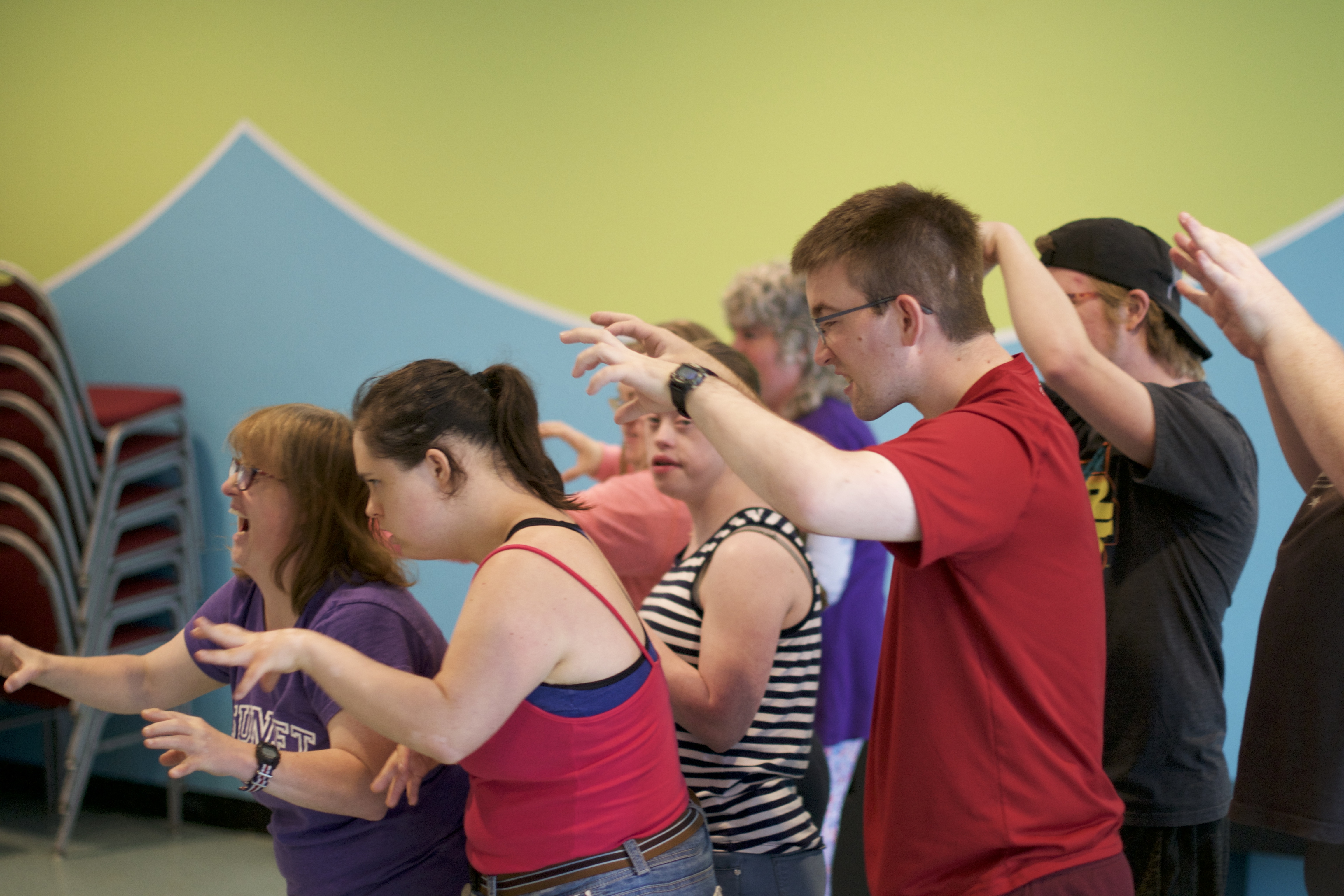My focus this week is on strength in the face of an onslaught of discrimination. What better opportunity to re-introduce some of the most resilient people I know, the performers of and contributors to PHAME, Portland’s fine and performing arts academy serving adults with intellectual and developmental disabilities. I have previously written about different aspects of their work here, here, and here.

Today I feel compelled to write because PHAME‘s current project, a Rock Opera titled The Poet’s Shadow, prepared in conjunction with Portland Opera, and directed by Bruce Hostetler, artistic director of Portland Revels, is well underway. I have had the privilege to document the rehearsal process photographically. Portraits of truly talented folks. They wrote the libretto, the music, they designed the costumes and the advertising posters, they dance to the choreography of Wobbly Dance, they sing in the choir, they play the music on iPads, they have five principals with demanding roles.
It is exceptional.

“The rock opera brings to fruition an 18-month collaboration between PHAME Academy and Portland Opera. In addition to lending PHAME the use of their Hampton Opera Center for the production’s performances, Portland Opera has taught opera-related classes at PHAME and has provided one-on-one vocal coaching to lead actors. The production also partners with Portland’s acclaimed dance duo Wobbly Dance, who will be choreographing the movement chorus, and with Metropolitan Youth Symphony, whose students will join PHAME’s iPad musicians in making up the production’s orchestra.” (https://pamplinmedia.com/pt/11-features/435217-345460-phame-and-portland-opera-rock-new-show)




Equally timely, though, is the need to spell out some of the darkest aspects that come with our society’s ignorance about, ideology around and treatment of disability.


I am not even thinking about the extremes: White supremacists, say, who try to disenfranchise marginalized groups, disabled people included, by recourse to an ideology enshrined in Eugenics and Race science. (After all the Nazis were inspired and crafted their laws after American Jim Crow and extended them to the disabled population.)


Not thinking about people enabling that ideology by implying mental illness is at the root of violent excess, rather than domestic radicalization, something repeatedly experienced in the wake of mass shootings, as the recent one in El Paso, Tx.


Not thinking about the ideology of some of the highest judges in the land (Kavanaugh’s record on disability issues is hair-raising), or the assault on the rights of people living with disability, including undermining the Affordable Care Act.


No, I am thinking of the daily volume of violence that is par for the course for this population living in a society bent on ableism – discrimination in favor of able-bodied people – in addition to all of the other obstacles thrown in their way, from problems with physical access and barriers to lack of employment opportunities creating a feedback loop between poverty and assumptions that disability is a sign of cognitive inferiority.


The statistics are staggering. For a succinct overview (with research references) go here. Here are summary quotes from the linked article:
Violent crimes are three times more likely to victimize disabled people than those living without disability (and the data exclude people who are institutionalized, not covered by the research. Numbers of victims there are expected to be significantly higher.)
Then there is law enforcement. “Police violence comprises so much violence against disabled people that we constitute up to half of those killed by law enforcement officers. They are quick to view disability, from deafness to neurodivergence to physical disabilities, as noncompliance—and even quicker to use that perceived noncompliance to justify excessive force.”
Schools: “Of the nearly 50,000 US students who were physically restrained during the 2013–2014 school year, more than 75%were students who received disability accommodations. This is absurdly disproportionate given that these students represented just 14% of the student population.“
*

Members of the iPad ensemble



*
The added value of organizations like PHAME lies not just in providing opportunities for talented artists and performers to be seen and heard or to be integrated into a community, lessening social isolation. The quality of the projects, of what they as individuals and as a group accomplish, reveals how wrong we are in our assumptions about a population many of us have little contact with. The imperative of full integration into the lives we all share is and should be, of course, independent of quality of performance or creative achievement. But having the public view accomplishments like these will help undermine our deeply rooted stereotypes. If this leads to changes in views around employability or independent housing or the degree of openness to interact on a level playing field, much will be gained.
In the meantime I suggest you do yourself a favor and buy tickets to “The Poet’s Shadow.” You will be moved beyond words.

And here is music for left hand only, helping pianists who lost a limb (and no, it’s not Ravel….)https://www.youtube.com/watch?v=xm1wNnn6m-Y





